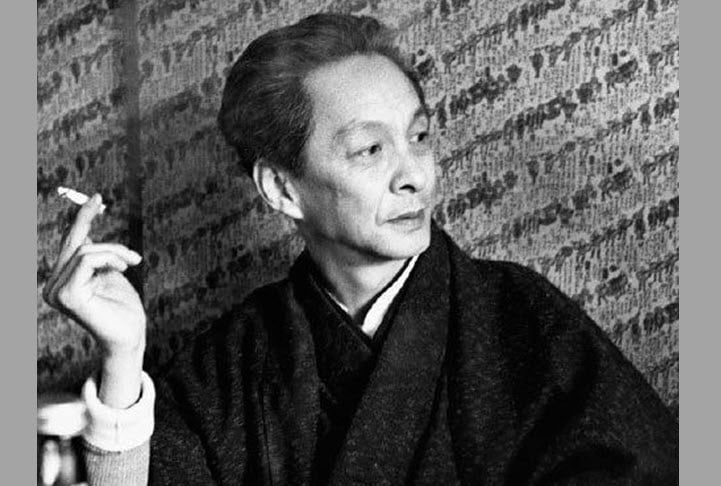The Life and Contributions of Sin Itiro Tomonaga

Sin-Itiro Tomonaga (31 March 1906 – 8 July 1979) was a distinguished Japanese physicist who made significant contributions to the field of quantum electrodynamics.
Early Life And Education
Sin-Itiro Tomonaga, born in Tokyo on March 31, 1906, was a prominent figure in the world of physics, known for his significant contributions to quantum electrodynamics. He was the second child and eldest son of Tomonaga Sanjūrō, a philosopher and professor at what was then Shinshu University. In 1913, the family moved to Kyoto, where Tomonaga’s father took up a professorship at Kyoto Imperial University. This move marked a pivotal point in young Tomonaga’s life, as he was raised in an environment steeped in academia. He later attended the same university, starting in 1926, which was known for its prestigious status and for producing several Nobel laureates, including Tomonaga’s classmate Hideki Yukawa. Tomonaga’s academic journey continued as he earned his bachelor’s degree in physics in 1929 and subsequently served as an assistant at the university for three years. His early life set the stage for a distinguished career that would see him become a Nobel laureate himself, recognized for his groundbreaking work in the field of theoretical physics. Tomonaga’s formative years were characterized by a rich intellectual atmosphere and rigorous academic training, which laid the foundation for his future achievements.
Career And Achievements
Sin-Itiro Tomonaga was a distinguished Japanese physicist, renowned for his pivotal contributions to quantum electrodynamics (QED). His illustrious career was marked by significant achievements and recognition. His early work at RIKEN under Yoshio Nishina laid the foundation for his future endeavors in theoretical physics. During his time in Germany, he collaborated with Werner Heisenberg’s group, furthering his research in nuclear physics and quantum field theory. Tomonaga’s most notable accomplishment came with the development of the renormalization method in QED, which earned him the Nobel Prize in Physics in 1965, an honor he shared with Richard Feynman and Julian Schwinger. His work provided a way to obtain finite results from the infinities that arose in quantum electrodynamics calculations, a significant breakthrough in the field.
Throughout his career, Tomonaga received numerous accolades, including the Asahi Prize in 1946, the Lomonosov Gold Medal in 1964, and the prestigious Order of Culture in 1952. He was also bestowed the Grand Cordon of the Order of the Rising Sun in 1976, one of Japan’s highest honors. His legacy is celebrated with a bronze statue in Tsukuba City, alongside fellow Nobel laureates Leo Esaki and Makoto Kobayashi. Tomonaga’s contributions have left an indelible mark on the world of physics, inspiring generations of scientists to explore the quantum realm.
Notable Events And Milestones
Sin-Itiro Tomonaga journey in physics began at Kyoto Imperial University, where he was classmates with another future Nobel laureate, Hideki Yukawa. After completing his graduate studies, Tomonaga joined the RIKEN institute, where he worked under Yoshio Nishina and later, during his time at Leipzig University, collaborated with Werner Heisenberg’s research group. His return to Japan due to the outbreak of World War II marked a significant turn in his career as he completed his doctoral degree from the University of Tokyo. During the war, Tomonaga’s research focused on the magnetron, meson theory, and his super-many-time theory. His post-war efforts were monumental in the development of QED. In 1948, he and his students revisited Sidney Dancoff’s work, leading to the discovery of the renormalization method, which addressed the infinite quantities arising in QED. This work earned him a share of the Nobel Prize in Physics in 1965, alongside Julian Schwinger and Richard Feynman.
Tomonaga’s contributions extended beyond theoretical physics; he was deeply involved in addressing the societal implications of scientific advancements. He was an advocate for the peaceful use of nuclear energy and actively spoke against the proliferation of nuclear weapons. His dedication to science and society earned him prestigious awards such as the Japan Academy Prize and the Order of Culture of Japan. Sin-Itiro Tomonaga’s legacy is a testament to the power of human curiosity and the pursuit of knowledge, echoing through the annals of history and continuing to shape our understanding of the universe.
Awards And Honors
- Nobel Prize in Physics (1965): Awarded jointly with Richard Feynman and Julian Schwinger for their fundamental work in quantum electrodynamics, with deep-ploughing consequences for the physics of elementary particles.
- Japan Academy Prize (1948): Recognized for outstanding contributions to the advancement of science.
- Order of Culture (1952): Bestowed by the Emperor of Japan to those who have significantly advanced science, art, or culture.
- Lomonosov Gold Medal (1964): A prestigious award given by the Russian Academy of Sciences.
- Asahi Prize (1946): A cultural award presented for achievements in the promotion of science and the arts in Japan.
- Grand Cordon of the Order of the Rising Sun (1976): One of Japan’s highest honors awarded for exceptional contributions to the nation.
- In recognition of his contributions, a bronze statue of Sin-Itiro Tomonaga, along with fellow Nobel laureates Leo Esaki and Makoto Kobayashi, was erected in Tsukuba City, Japan (2015).
Additional Resources
- Documentary: NobelPrize.org features a documentary on Sin-Itiro Tomonaga, detailing his life and work, particularly his Nobel Prize-winning contributions to physics.
- Books: “The Story of Spin” by Sin-Itiro Tomonaga is a comprehensive book that delves into the concept of spin in quantum mechanics.
- Museums: While specific museums dedicated to Tomonaga’s work are not mentioned, science museums with exhibits on quantum physics and the history of the Nobel Prize may feature sections on his contributions.
Observer Voice is the one stop site for National, International news, Sports, Editor’s Choice, Art/culture contents, Quotes and much more. We also cover historical contents. Historical contents includes World History, Indian History, and what happened today. The website also covers Entertainment across the India and World.

